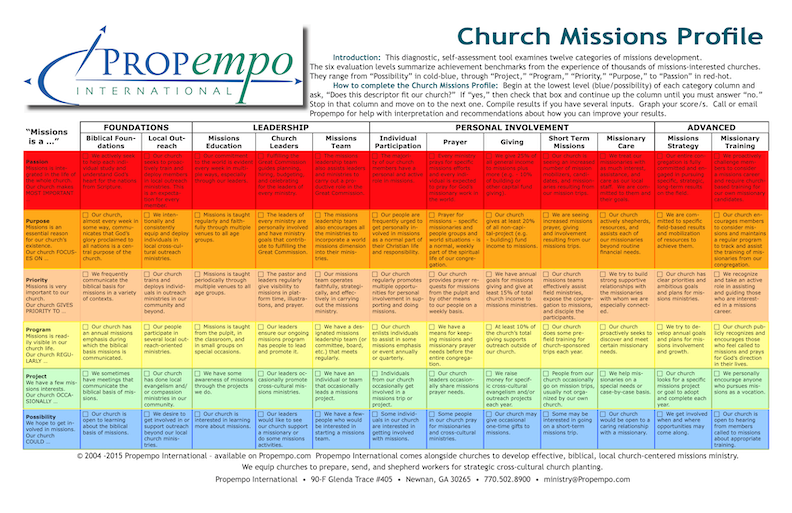
It is important for every church, no matter the size, to have a clear and purposeful strategy of missions. For that matter, every individual who supports missions or is otherwise involved in missions should have a strategy.
Before you develop a strategy of missions, you should articulate your theology of missions and your philosophy of missions. Theology identifies your purpose in missions. Philosophy grows out of your theology and mixes with your interests, passions, and resources. It becomes a sort of road map, identifying your destination. It gives you options on how to fulfill your purpose. Once you have a sound theology and philosophy articulated, you can work on strategy, the route to take to arrive at your destination.
The primary strategy of many churches and individuals has been to support missionaries and ministries that have randomly appeared before them. While God has worked mightily in the world through this rather haphazard method, many important needs have been neglected. God can work without your planning or involvement, but He intends us to take responsibility and invest your resources as wisely as you can - with His help. You should partner with and invest in strategic, productive, and effective missionaries and ministries that fit your theology and philosophy.
To develop a good missions strategy, we must discover and pursue God’s direction as a regular practice rather than reacting to the opportunities that come along.”
– David Mays
An important part of developing a missions strategy is to clarify how missions decisions have been made in the past and how they will be made in the future. What are the values and priorities that drive the decisions? It is important that the decision-making group clarify, openly and honestly, why they make the decisions they do and why their predecessors made the decisions they did. Do you follow historical precedent? Do you favor people you know or those a key person knows? Do you vote the partly line with your denomination? Do some of you have vested interests in particular missionaries or organizations? Do you tend to agree with an individual you respect? Do you accept a proposal because it is uncomfortable to disagree? Do you accept a proposal because you like the person or because they have a good presentation?

A good missions strategy is two dimensional. It includes an internal dimension – the development and mobilization of your resources, and an external dimension – the deployment of your people and resources into the world.
I said that strategy is dependent on theology and philosophy. Theology determines your purpose and philosophy gives you a map that identifies your destinations. To use the map, you must select and prioritize your destinations. Your strategy defines the route you will take to arrive at your purposed destinations - your goals. It is a how document that helps you get from where you are to where you want to be.
Developing a good missions strategy requires you to know two things: your destination and where you are now. You can find out where you are in missions in a broad overall sense by using the Propempo Church Missions Profile (CMP). The CMP helps a church evaluate the commitment and effectiveness of its mission efforts in twelve key categories. Let us know if we can help you with the rest.

Dr. Selvey is an expert in missionary training and church missions development. He is available to work with your church individually to help you become more effective and productive in your global missions efforts. Email for more information.

Please login to comment.